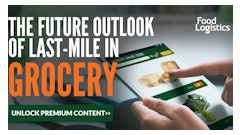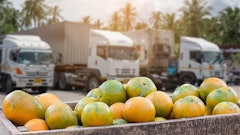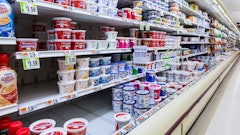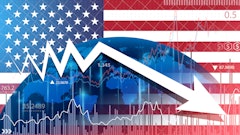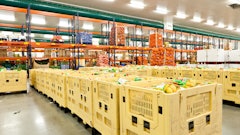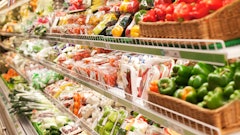The food, beverage and consumer packaged goods industry has a $2 trillion dollar impact on the U.S. economy, according to a report just published by the Grocery Manufacturers of America.
If that number sounds surprisingly high to you—as it did to me—it's because the study not only measured sales at retail, but also took into account the huge amount of spending on related supply chain activities, as well as the impact on other industries, such as ranching, farming and real estate.
The study, conducted by PriceWaterhouseCoopers, was released at GMA's Information Systems and Logistics Distribution Conference held last month in Orlando, FL.
"It turns out the food industry is a very big component of the U.S. economy," said Lisa Feigen Dugal, a partner with PWC and a speaker the conference. "The industry, because of its segmentation, has never been measured this way before. To conduct this study, we built a model looking at the inputs and outputs of the industry and it clearly demonstrates the importance of it—it's bigger than the electronics field, for example."
According to the report, Insights into the Food, Beverage and Consumer Products Industry, the industry generated an estimated $2.1 trillion of revenues and contributed $1 trillion to the GDP in the U.S. in 2004, supporting 14.7 million American jobs. CPG sales had a direct impact of $450 billion, which was matched by an indirect impact of $478 billlion coming from supply chain sales.
In addition, the study found the direct impact on the economy is increasing and its recent growth rate has matched that of the overall U.S. economy. "The food industry has traditionally been thought of as a ‘slow' industry," said Dugal. "But in fact, the industry has made a tremendous effort to grow sales despite challenges over the last three years."
Those challenges include growing concerns about ethics, fraud and compliance, which Dugal pointed out as relatively new issues to the industry. "Pharmaceuticals and the banking industry are much further ahead with dealing with these concerns."
Other issues included globalization, shifting consumption patterns and the increasing complexity of the supply chain. "The quick growth of the private label category is complicating the situation even further," said Dugal. "As more CPG companies continue to develop their product portfolios, retailers are trying to reduce inventory and add their own private label lines––they're producing their own goods."
Companies are responding to these changes through collaboration in many areas––through outsourcing, building brand awareness, creating new consumer experiences and working with constituents to respond to regulatory pressures and sustainability issues.
Despite the challenges, the future looks bright for the industry overall. The good news is that, no matter what, people have to eat. It's good to be part of an industry that's growing bigger—and better.




